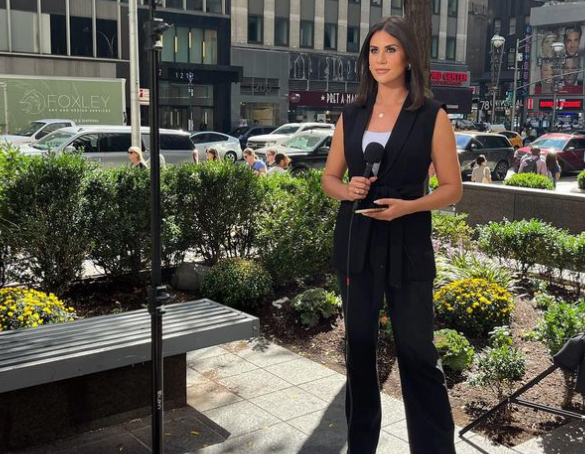Journalists who have clear long-term career goals are significantly better positioned for success than those who have not taken the time to think logically about their futures. That’s a pretty simple statement, but none the less true.
In 30 years of running stations, I interacted with journalists on every level, from entry-level reporters and producers to network news heads. Looking back, it’s amazing how few young people had clear career goals. Other than the old standard of reporters always wanting to be anchors, most had never taken the time to actually think about the future. Their overwhelming goal was advancement to a larger market .
Talk to the average producer and she may well tell you how much she loves her job. Ask if she wants to be a news director some day and you may get a blank look. Ask if she wants to be a general manager and she will think you’ve lost your mind because, after all, she’s just a producer. Here’s a news flash. Someone you work with is going to become a news director. Someone else is going to become a general manager. Why can’t that person be you?
There are a few people who produce their entire careers and love it. There are others who feel the same way about reporting, but those are the exceptions. No matter how much fun a job may be at the time, most of us eventually find ourselves ready for a new challenge. That’s why so many eventually leave the industry. As Dr. Debora Wenger recently pointed out, lower level television jobs scandalously do not pay competitive salaries, which is why a reporter might leave to handle press relations for a local school system or some other related job that pays better and offers weekends off. Those are legitimate reasons to leave an industry you love, but still a shame. Far better to advance within.
So, where to start? Begin by looking around. What job would you ultimately like to have? Don’t worry about qualifications for now. Dream big. What looks like great fun? The main thing is to decide if you want more responsibility. Once you have an idea of something that piques your interest, here are some ways to get started:
- Make an appointment with the person whose job you would ultimately like to have. Ask for an in-depth interview so that you get a full picture, including the negative parts of the job. You will be surprised at the ease of these interviews. People love to talk about themselves.
- Don’t stop with one person or one job. Interview a number of upper-level people, even those in other departments whose jobs don’t seem interesting from the outside. You may be surprised.
- One result of your work will be a clearer understanding of the stepping stones to higher management. Lay these out of paper. Are you willing to put in the effort and years required? Are you willing to move to a different region of the country, perhaps multiple times? Are you willing to get additional education if that is required? Ask yourself honest questions and give yourself honest answers.
- Your eventual decision will combine your heart, because you will only excel in something you love, and your head, based on the information you have gathered.
- Once you have made a decision, begin to build your skillset. You will need help, so seek out a mentor, possibly one of the people you interviewed.
- We are in a changing industry, so make sure to also understand the big picture, reading industry newsletters and networking wherever possible.
- Ask questions and think. We work in a copycat industry. Original thinkers have an advantage.
Finally, and this is the most important thing of all, excel in your current job. Promotion always comes as a result of outstanding work in a current position. Without excellence in the job you have today, no one is going to promote you to a higher level.
Journalists who go on to bigger and better things often do so because they have both clear goals, and the courage to ask for help. Add exceptional performance and you have a formula for a rewarding future.

Hank Price is a veteran media executive, educator and author. He is a frequent speaker to television industry groups about the future of media. He currently serves as Director of Leadership Development for the School of Journalism and New Media at Ole Miss. During a 30-year career as a television general manager, Priced specialized in turnarounds, leading television stations for Hearst, CBS and Gannett. During this time, he became known for turning traditional businesses into multi-platform brands. Simultaneously, he spent 15 years as senior director of Northwestern University’s Media Management Center, teaching in both the domestic and international executive education programs. Price is the author of Leading Local Television (BPP, 2018) and co-author of Managing Today’s News Media: Audience First (Sage, 2015) a management textbook.








